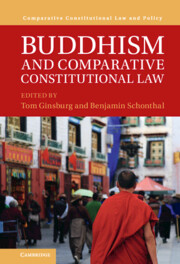Buddhist texts are preserved in multiple languages, and even common Buddhist terms enter Asian vernaculars by way of multiple linguistic transformations. This means that a particular Buddhist phrase can appear in multiple forms and spellings across time and space, making it difficult to standardize terms for a volume such as this. In what follows, we employ the following conventions:
Where a Buddhist term is included in the Oxford English Dictionary (OED), we used the OED spelling unitalicized (e.g., dharma, sangha, nirvana).
Where a term did not appear in the OED, we used the following rules:
1. In chapters dealing with Theravāda Buddhist contexts, we opted for the Pāli forms of words (e.g., dhammarāja instead of dharmarāja).
2. In all other chapters we maintained the transliteration conventions specific to the languages in question, with the exception of favoring the Sanskrit form of common Buddhist terms.

